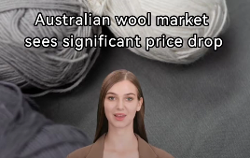In a recent release of statistics by U.S. Customs and Border Protection (CBP), it has been revealed that since the Uyghur Forced Labor Prevention Act (UFLPA) went into effect in June 2022, U.S. authorities have detained more than 1,090 shipments related to apparel, textiles, and footwear, collectively valued at over $46 million.
As of November, these detained shipments have undergone thorough scrutiny, resulting in significant actions. Among them, 570 shipments, valued at $13 million, were denied entry into the United States, while nearly 340 shipments, with a total value of $27 million, were released. Presently, none of the shipments are pending further action.
The CBP's meticulous review process indicates that fashion goods constitute 17 percent of the shipments reviewed to date, making it the second-most scrutinized category after electronics, which saw over 2,930 shipments experiencing delays at the ports. The industry and manufacturing category closely follows with more than 1,080 detained shipments.
China and Vietnam are the primary countries of origin for the scrutinized shipments. China accounted for over 590 held shipments, valued at $20 million, making up almost 55 percent of the cargo inspected. Notably, 324 of these shipments, worth $2 million, were denied entry. Vietnam followed with 387 shipments worth $20 million, representing 35 percent of the flagged goods. Over 220 of the shipments from Vietnam, valued at $10 million—five times the figure for rejected Chinese cargo—were barred from entering the U.S.
The UFLPA, signed into law by President Biden in December 2022, imposes a rebuttable presumption that goods originating, in whole or in part, from China’s Xinjiang Uyghur Autonomous Region are a result of forced labor and therefore inadmissible to the United States.
In response to the enforcement efforts, an Entity List identifying companies linked to the repression of Uyghurs and other Turkic minorities has expanded to 30. This list includes businesses outside of Xinjiang, implicated in state-sponsored labor transfer programs. Notably, firms involved in cotton, a priority category for enforcement, have been joined by companies engaged in the production of wool, cashmere, and other textile products, signaling a broader scope of enforcement.
Speaking at the U.S. Fashion Industry Association’s Apparel Importers Trade & Transportation Conference in New York in November, Robert Silvers, undersecretary of strategy, policy, and plans at the Department of Homeland Security, emphasized that enforcement is an "iterative, ongoing process." Silvers likened it to "cleaning and painting a cruise ship," highlighting the dynamic nature of supply chains and the need for continuous adaptation to industry shifts and advancements in technology.





